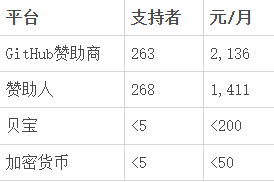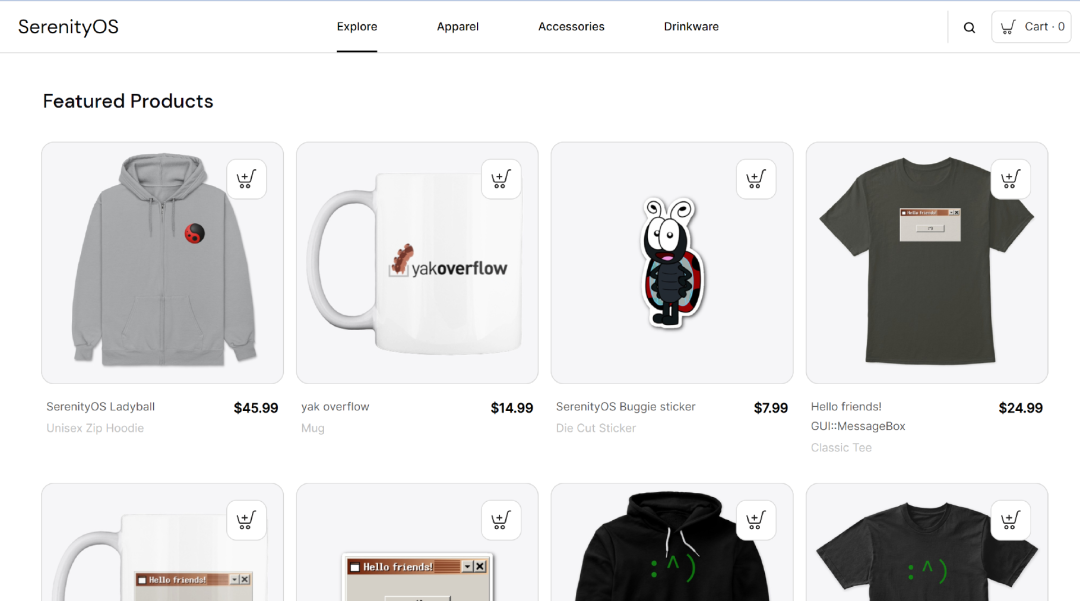[CSDN editor's note] Last week, we published " October in prison, constant cyber violence, and struggling to get enough food and clothing!" An open source project with more than 9 billion downloads, and 9 years behind it ", tells the example of Denis Pushkarev, the author of core-js, the JavaScript modular standard library, who was constantly being bullied by the Internet after open source, and was unable to give his family a decent life.
The author of this article, Andreas Kling, is the founder of the operating system SerenityOS. He shared how he obtained financial sponsorship after being open source full-time, and hoped to give a little inspiration to builders who are worrying about funding for open source projects.
Edited by Deng Xiaojuan | Meng Yidan
Listing | CSDN (ID: CSDNnews)
The commercialization of open source projects is an enduring topic. On the one hand, people participating in open source projects hope to get rid of the pressure of cashing out and focus on polishing products/projects; on the other hand, since they cannot make a living from it, it is difficult for people to carry forward open source projects without distractions, which is not conducive to Sustainability of open source projects.
Andreas Kling has something to say on this question. Andreas Kling from Sweden is the founder of the operating system SerenityOS. This is a Unix-like graphical desktop operating system, which was ranked second in the GitHub list for a long time last year.
In 2018, after Andreas Kling resigned, he spent nearly 3 years developing SerenityOS by himself . Today, the function of this operating system is becoming more and more powerful. Although it is not yet comparable to the mainstream operating system, its design concept and functions are loved by the majority of developers, and it has successfully blossomed and become an active open source community.
In May 2021, Andreas Kling decided to develop and operate SerenityOS full-time. For him, and indeed for the open source community in general, it was a gutsy but exciting thing to do. Because of this, how to make this open source project more sustainable and allow more enthusiasts to contribute has become the most important topic. In this regard, Andreas Kling announced the way he can obtain funding and sponsorship when he operates SerenityOS full-time, hoping to give a little inspiration to builders who are worrying about funding for open source projects.
01
SerenityOS Funding Channels
Open source is not a business model per se, but a way of building software and collaborative development. Therefore, it is almost impossible for an open source project to gain the favor of large capital in the early stage. Therefore, personal sponsorship/donation is the main source of funding for many open source projects.
Primary source: Individual sponsorship/donation
In April 2019, Andreas Kling created a Patreon on GitHub. At that time, SerenityOS was still in its early days, and even Andreas Kling felt that he seemed a little whimsical. Although he had little expectation, he was still curious to see what would happen. But surprisingly, a few people actually signed up.
Later, when GitHub Sponsors opened, Andreas Kling opted in for the first time. The incentive for GitHub Sponsors at the time was zero-fee participation and a matching service for the first $5,000 in donations. This time, more people participated.
Today, many people have donated to Andreas Kling through these two platforms, so that he can spend more time on SerenityOS without providing any goods/services in return. Andreas Kling also provided some statistics for reference (as of October 29, 2022).

"However," joked Andreas Kling, "in the early days I kept a close eye on the numbers because it was fascinating, but then it became a source of stress, so now I'm just doing the books. Time to check once a month."
Secondary source of income: YouTube
Andreas Kling was active on YouTube in the early days of the SerenityOS project. When the project was about 6 months into the process, he started posting related videos on YouTube. Although the videos were clumsy, people seemed to enjoy watching someone gradually build a new operating system from scratch.
Later, the number of followers of the channel increased, and the data began to increase, so it could be realized in the form of advertisements. Revenue from advertising depends on how often new videos are uploaded and how many they are viewed. While YouTube doesn't allow a detailed analysis, Andreas Kling gave an estimated ad revenue for the month: $315.
In this $315 income, the income of "channel membership" is also included. YouTube allows you to individually create content for channel members, which is equivalent to a paid subscription to exclusive content. But Andreas Kling doesn't use this feature because he prefers to let everyone see everything he does. But it would indeed be a way to expand the revenue stream.
The source of income of the tertiary industry: Peripheral products
As the popularity of the project grew, more and more people asked Andreas Kling to provide peripheral products related to SerenityOS, such as T-shirts and mugs. Finally Andreas Kling created a print-on-demand store on Teespring. However, this part of the income fluctuates greatly, and people will not buy the same peripheral product repeatedly, so you have to put in some effort to provide new designs or products.

Non-Revenue ①: Sponsorship/Native Advertising
When a project/product gets enough attention, advertisers will come to it. Andreas Kling has received PR requests for products including but not limited to mobile games, VPN services, programming courses, and cloud platforms. But so far, he has not taken any commercials. Mainly because of a rule Andreas Kling set for himself: don't advertise things you haven't used.
The only collaboration that came close to getting an ad was when he started using the CLion IDE, the guys from JetBrains (the company behind CLion) gave him 3 one-year license codes for a sweepstakes for his YouTube viewers. Andreas Kling said that because he uses CLion every day, he is happy to cooperate with him, but so far it is only a friendly cooperation, and has not formally cooperated in the form of advertising.
Non-revenue part②: venture capital
Andreas Kling said that some venture capital companies have come to him, hoping to invest in or subscribe for his project, but he has no intention of selling his project, and Andreas Kling prefers to see There are many small donors who believe in him, rather than one giant investor telling him what to do.
Special Section: Accounting and Taxation
It has to be said that all the above situations are not stable and formal income methods, so the Swedish tax department does not have too much guidance and requirements on how to tax and other matters. But Andreas Kling didn't want to make sure that all the funding issues related to the project were correct, and he also wanted to make sure that he paid all the taxes that should be paid. For this reason, he hired an accounting consultant to Responsible for related matters.
Following a proposal from an accounting consultant, Andreas Kling set up a company in order to handle financial matters. So he founded the company Cerphus Software AB in 2021. Although it cost a little money to hire financial personnel, Andreas Kling said that the company has been running smoothly, except for the occasional expenditure of the development part, accounting services are his only real expenses.
02
to make a living and to make love
To sum up, the income mentioned above allowed Andreas Kling to earn US$4,200 (approximately RMB 28,900) in that month. Even though Andreas Kling isn't living a rich life, and despite Sweden's high taxes, it's enough for Andreas Kling and his Canadians to make ends meet.
Andreas Kling believes that while he could make more money elsewhere, the value of being free to work on SerenityOS is infinite.
For the commercialization of open source projects, based on the reasonable and effective business model of open source projects, only by doing a good job in open source products and communities can we create an excellent and sustainable open source project. Only by allowing contributors who participate in the joint construction to receive reasonable rewards can more people be encouraged to participate and the open source project will be carried forward.
Reference link: https://awesomekling.github.io/How-I-make-a-living-working-on-SerenityOS/
Text / transferred from the "CSDN" public account
Click on the official account card below to follow me
In the official account dialog box, reply the keyword "1024"
Get a free practical tutorial on making money from sideline business
